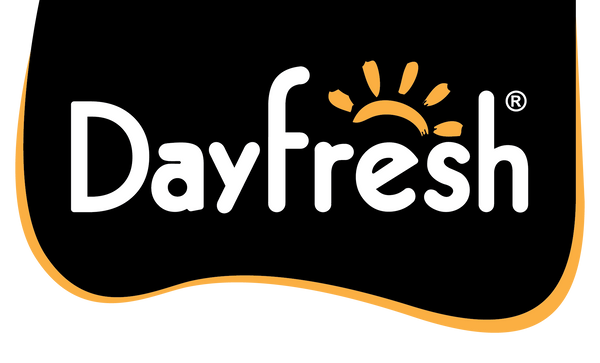
1 Cup Milk Calories: Nutrition, Benefits & Health Facts
Share
Milk has been part of our lives since childhood whether it was in a warm glass before bed, mixed into your morning tea, or as the creamy base for your favorite smoothie. But when you start keeping an eye on your daily diet, the big question pops up: how many calories are in 1 cup of milk? And beyond calories, what about the milk nutrition that actually fuels your body?
Let’s break it down in a way that’s easy, clear, and perfect for anyone curious about their health, fitness, or just wanting to make smarter food choices.
How Many Calories in 1 Cup Milk Calories?
The answer depends on the type of milk you drink:
● Whole Milk: Around 150 calories per cup (240 ml)
● 2% Reduced Fat Milk: Around 120 calories per cup
● 1% Low-Fat Milk: Around 100 calories per cup
● Skim Milk: Around 80 calories per cup
So, if you’re watching calories but still want all the goodness, skim milk is the lightest option. But remember, each type of milk brings its own unique milk nutrition profile.
Milk Nutrition: What’s Inside That Cup?
A single cup of milk isn’t just about calories, it's a nutrient powerhouse. Here’s what you’re sipping:
● Protein: Around 8 grams per cup great for muscle repair and satiety.
● Calcium: About 30% of your daily needs, supporting strong bones and teeth.
● Vitamin D: Often fortified in milk to help your body absorb calcium.
● Vitamin B12: Essential for nerve function and red blood cell production.
● Potassium: Helps maintain healthy blood pressure.
Even skim milk, despite being lower in calories and fat, still packs in the same protein, calcium, and vitamins. That means you’re not losing out on nutrition just because you’re cutting calories.
Health Benefits of Drinking Milk
When you look beyond 1 cup milk calories, you see a long list of benefits that make milk worth keeping in your diet.
Thanks to its rich calcium and vitamin D content, milk supports bone density and dental health reducing the risk of osteoporosis later in life.
Protein in milk is high-quality and contains all nine essential amino acids. It’s a great post-workout drink for muscle repair.
Low-fat or skim milk can provide potassium without the extra saturated fats, helping keep your heart in check.
If you’re counting calories, switching from whole to skim milk can save you around 70 calories per cup without sacrificing core milk nutrition.
Whole Milk vs. Skim Milk: Which One Should You Choose?
Whole Milk:
● Creamier taste and texture
● Slightly higher in omega-3 fatty acids
● Best for kids under 2 years old or people needing more calories
Skim Milk:
● Light on calories and fat
● Same protein and calcium content as whole milk
● Ideal for those watching weight or cholesterol levels
Your choice really depends on your lifestyle, taste preferences, and health goals.
Common Myths About Milk
Myth 1: “Skim milk has less protein than whole milk.”
Fact: Both have roughly the same amount of protein—around 8 grams per cup.
Myth 2: “Milk is only for kids.”
Fact: Adults benefit just as much from the calcium, vitamins, and protein in milk.
Myth 3: “Milk causes weight gain.”
Fact: It’s all about portion control. Even whole milk can be part of a balanced diet when consumed in moderation.
Day Fresh Tip: Making Milk Part of Your Day
You can enjoy milk in more ways than just drinking a plain glass. Try:
● Adding it to your morning oats for a creamier texture.
● Using it in smoothies with fruits and seeds for an energy-packed breakfast.
● Use milk to make creamy sauces (like white sauce for pasta), custards, pancakes, or cakes for a richer flavor and softer texture.
● Mixing it into your coffee or tea for a softer taste.
Why Choose Day Fresh Milk?
At Day Fresh, we believe in delivering milk that’s as fresh and nutritious as it should be. From farm to your table, we maintain strict quality checks so every sip gives you maximum milk nutrition without unnecessary additives. Whether you love the creamy taste of whole milk or prefer the lighter feel of skim milk, we’ve got it fresh, pure, and ready for your lifestyle.
Want to explore our full range of milk products? Visit our milk collection page
Quick Facts: 1 Cup Milk Calories at a Glance
|
Type of Milk |
Calories |
Protein |
Fat |
Calcium % DV |
|
Whole Milk |
~150 |
8g |
8g |
30% |
|
2% Milk |
~120 |
8g |
5g |
30% |
|
1% Milk |
~100 |
8g |
2.5g |
30% |
|
Skim Milk |
~80 |
8g |
0g |
30% |
When you think about 1 cup milk calories, it’s easy to focus just on the numbers—but milk is more than calories. It’s one of the most nutrient-rich beverages out there, offering essential vitamins, minerals, and protein.
Whether you’re sipping on whole milk for a creamier feel or going for skim milk to keep calories in check, milk can fit beautifully into your balanced diet.
So next time you pour yourself a cup, know that you’re not just counting calories you're fueling your body with real, wholesome milk nutrition.
Have questions or want personalized suggestions? Visit our Contact Us page and our team will be happy to guide you.

